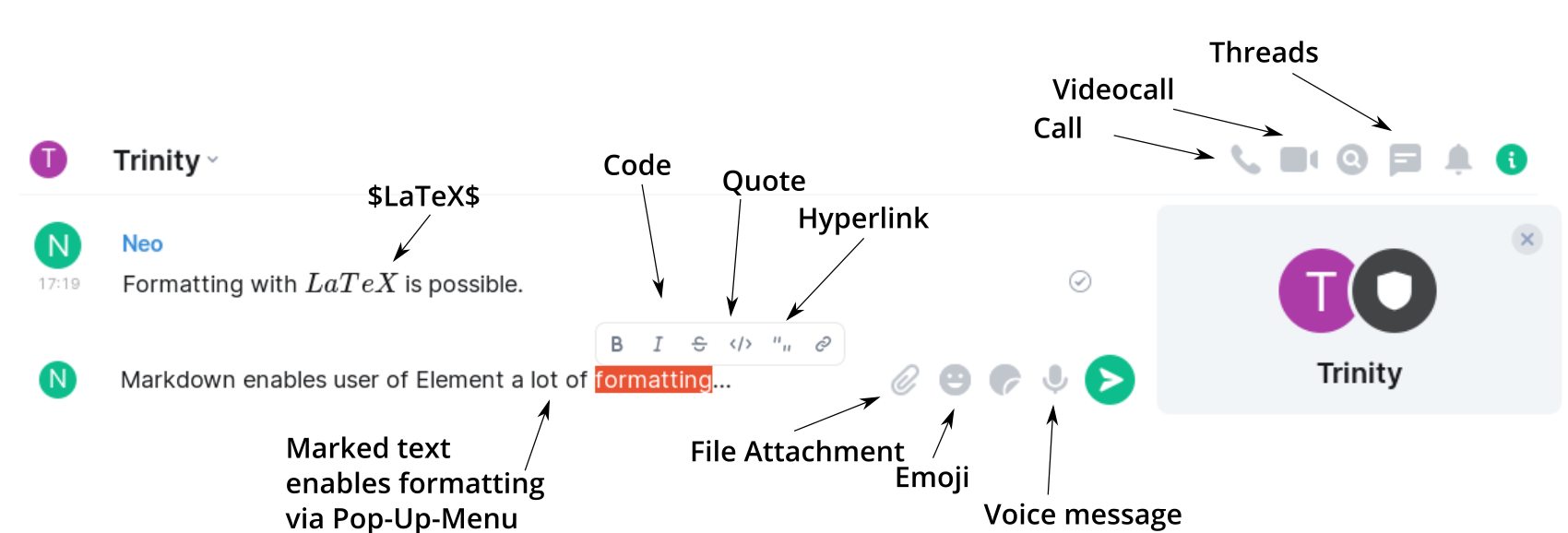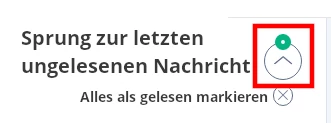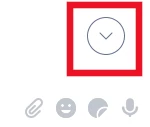Write and read messages
Messages can be sent with the Enter key. For a line break press Shift + Enter.

files (also images) can be sent up to a size of 25MB. For this purpose the paper clip must be selected. The sidebar with the document symbol shows the files within a room. Larger files can be shared via the cloudstore of Bauhaus-Universität Weimar and a share link.
Using text formatted in the markup language MarkDown, messages can also be formatted in Matrix Element. Here are some examples:
| result | to type |
|---|---|
| Bold | **Bold** |
| Italic | _Italic_ |
| | quote | > quote |
| Heading 1 | # Heading 1 |
| Heading 2 | ## Heading 2 |
| Matrix Help | [Matrix Help](https://doc.chat.uni-weimar.de/) |
 |
 |
| list entries | * list entry* list entry* list entry |
| numbered lists | 1. numbered list2. numbered list3. numbered list |
The current MarkDown specification can be found here.
The input of LaTeX formulas is currently supported as lab functionality and has to be activated from the messaging partner as well to display LaTeX formular correctly.
Hashtags can be used to make terms easier to find in the search.
Emojis can be reached with a starting colon “:” and at least two further characters. If you do not know the names of your preferred emojis you could click on the smiley-icon on the right of the message-entry-row and choose from the offers there.

If there are more unread messages in a room than the screen can display, clicking on the icon to the right of the central content with a triangle pointing up and a dot pointing up will make you jump to the oldest unread message.
 Similarly, you can jump to the latest timestamp of a conversation by clicking on the triangle at the bottom of a circle on the right edge of the central content page.
Similarly, you can jump to the latest timestamp of a conversation by clicking on the triangle at the bottom of a circle on the right edge of the central content page.

A theme-based presentation (also called “threading”) is now available in Element as well.